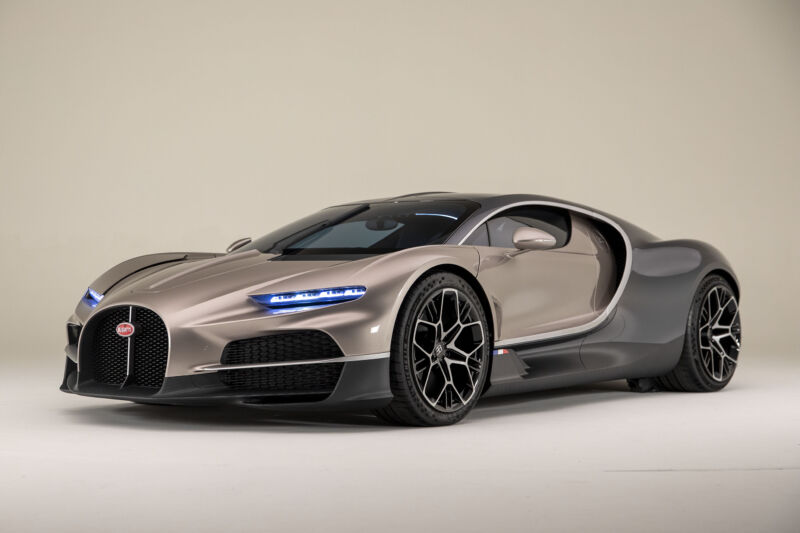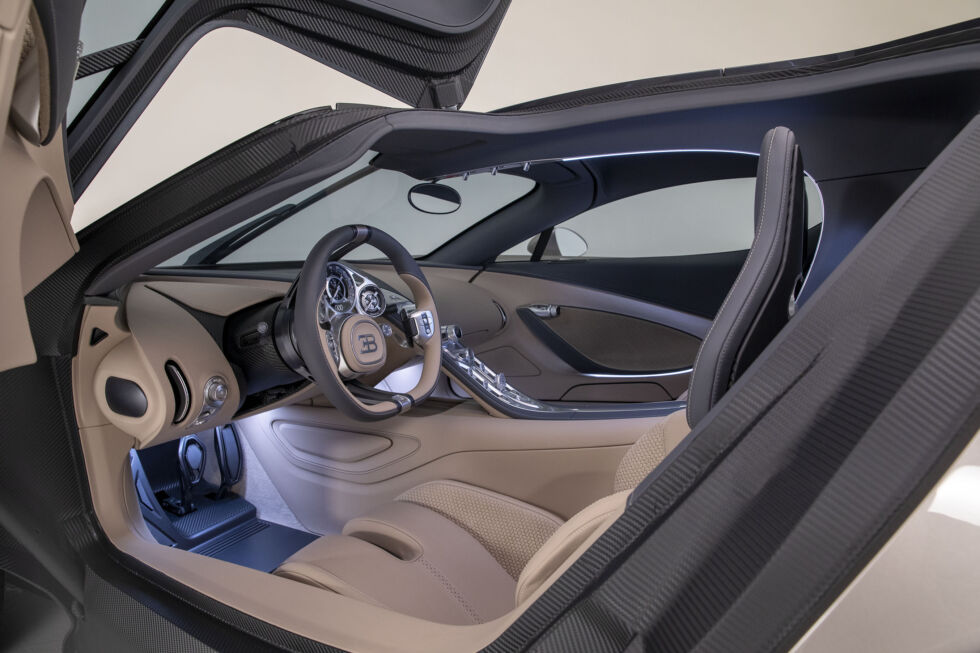
Enlarge / The Tourbillon is recognizable as a modern Bugatti, but it’s very different under the skin.
Bradley Iger
Since the launch of the hypercar-defining Veyron back in 2005, modern Bugattis have served as benchmarks for straight-line performance and no-expense-spared automotive engineering. At a time when a 300 horsepower Mustang GT was something to crow about, the quad-turbocharged, W16-powered Veyron offered more than a thousand, metric (987 hp/736 kW).
Perhaps more importantly, and in contrast to most other world-beating performance cars, the Veyron wasn’t presented as some skunkworks project that had been pushed to the ragged edge. Instead, it was a wholly realized ultra-luxury performance machine, replete with the sort of grand touring appointments you’d expect to find in a Bentley rather than a top-speed record holder.
Still, it was the numbers that instantly captivated enthusiasts and casual onlookers alike, and Bugatti would go on to reset the bar with the introduction of the 1,479 hp (1,102 kW) Chiron in 2016.
-
Bugatti concentrated on achieving a lower frontal area and roofline with the Tourbillon.
Bradley Iger
-
The Tourbillon’s oval-ish profile forms a similar shape to that of a bird of prey.
Bradley Iger
-
The curve around the door opening is called the Bugatti line.
Bradley Iger
-
Getting cooling air into the car remains an important priority
Bradley Iger
-
A large rear diffuser generates important downforce at speed.
Bradley Iger
-
In case there was any doubt, the taillights spell it out.
Bradley Iger
-
Bugatti
-
Bugatti
A Bugatti needs to be more than just fast
But now, less than a decade later, the landscape of automotive performance looks markedly different. Thanks to Rimac—which incidentally now has a controlling interest in Bugatti—those with the means can roll out of a showroom driving a street-legal vehicle that’s capable of out-accelerating a Formula One car, while other manufacturers are offering rather inconspicuous luxury sedans with more than 1,200 hp (895 kW).
Today, buyers can choose from dozens of different vehicles that are capable of blasting to 60 mph from a standstill in less than three seconds. As a result, there’s a growing sense that we’re living in a post-horsepower world, and Bugatti seems to be well-aware of this paradigm shift.
“I think we’ve reached a point where cars are so incredibly fast that it’s not the differentiator anymore,” Bugatti design director Frank Heyl noted while showing us around a Tourbillon prototype at a production studio in Long Beach, California, a few months ago. “It’s about the emotions that it generates. Your heart has to tell your brain that it’s a good decision to buy this car.”

Enlarge / The only screen you’ll find in here is hidden from view unless the driver requests it.
Bradley Iger
It’s a sentiment that speaks volumes about Bugatti’s approach to the Tourbillon development. This time around, the focus seems to be more about engaging the senses rather than delivering headline-grabbing stats. Still, figures like 0-186 mph (300 km/h) in less than 10 seconds and 277 mph (445 km/h) top speed make it abundantly clear that the Tourbillon will be a sensational performer.
That performance, which bests the Chiron by more than three seconds and 16 mph (26 km/h) in those metrics, respectively, is due in part to the Tourbillon’s more aerodynamic shape. During our briefing, Heyl said that designers turned to birds of prey for inspiration, influence that is particularly evident at the nose of the car, where the Tourbillon’s reduced frontal area significantly lowers aerodynamic drag. While the overall look doesn’t stray too far from the Chiron, the increased emphasis on aerodynamics—as further evidenced by elements like the massive rear diffuser and sinewy front clip—also gives the Tourbillon a more muscular, purposeful aesthetic.